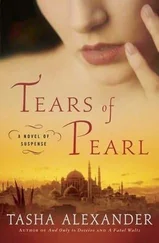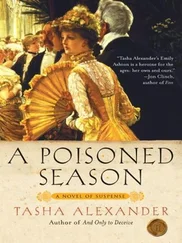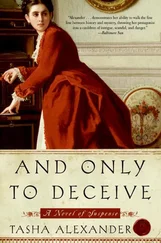“An excellent suggestion,” Colin said. “You will, of course, make us aware of anything you learn?”
“Of course,” Monsieur Leblanc said.
“I don’t think it’s wise to entirely abandon our search for Myriel,” I said. “But I do want to learn more about the familial connection between the Markhams and the Priers. Brace yourself, my dear husband. I’ve a sudden and mad desire to return to your mother’s house.”
18 July 1892
Colin left for Rouen with Inspector Gaudet on business, and subsequently wired to say he was staying over with his wife who is no longer being shipped back to England. Well done, Emily, I say. I can’t say I approve of the idea of husbands packing their wives off whenever situations grow difficult.
She’s sharper than I thought. I’m duly impressed with this Greek work of hers and would like to assist in furthering her intellectual development. There’s a flair to her translation—she clearly has an ear for poetry and storytelling. I wonder if she would be suitable for introduction to my friends in the Women’s Liberal Federation. We’ve never discussed politics.
Heaven help me if she turns out to be a Tory.
Colin and I took the earliest possible train back to Yvetot. Cécile, who needed additional time to pack and organize her affairs, planned to join us as soon as she could in the next day or so. When we appeared on her doorstep, Mrs. Hargreaves’s face betrayed little emotion. She gave her son a perfunctory embrace and nodded at me before continuing on her way into the garden, where, judging from the basket she held, she planned to pick raspberries or whatever other fruit she might find her bushes laden with. Undaunted, I pressed my reticule into Colin’s hand.
“Take this upstairs for me, would you?” I asked. “I’ve some questions for your mother.”
“Would you like me to come with you?”
“No,” I said. “But thank you. It’s time I faced her on my own. I can’t let her run roughshod over me forever.”
“I love you,” he said and gave me a kiss before sending me off in the direction of a brambly sort of patch where the lady of the house was hard at work. She snapped to attention as I stepped near her, and scowled as I began picking the swollen raspberries and depositing them in her ready basket. I said nothing for several minutes, occasionally popping a berry into my mouth and delighting in its sweetness.
“Are they always this good?” I asked.
“I would tolerate nothing less,” she said.
“I’m sorry you find me so disappointing,” I said. “But at the moment, I must beg you to put aside your disdain and help me.”
She didn’t look at me, only continued her work. “You should finish your translation of The Odyssey .”
This stopped me dead.
“Homer?”
“Don’t be daft,” she said. “Of course Homer.”
“Homer?”
“How long do you plan to stand there repeating yourself?” She pulled the fruit too forcefully from a branch, and, seeing it was smashed, flung it to the ground. “Colin gave me what you’ve done so far thinking I might want to read it, and I was impressed—although I will admit my Greek is not what it should be.”
“You read the bits I’ve translated?” My mouth hung open stupidly.
“You’ve a decent mind, Emily, and you’re wasting it playing detective.”
“But I like it,” I said before I could stop myself.
“The pursuit of relentless hedonism rarely leads to anything good,” she said. I dropped another handful of raspberries into her basket. “My son does tell me you’re good at it. Detecting, that is, not hedonism.”
“He’s far too generous with his praise—”
“Don’t play with me, child. I’ve no interest in false modesty. I holed myself up here because I couldn’t cope with my husband’s death. It was inevitable, I knew, from the day I met him. Until we married, I lived as you do—following whatever interested me at the moment. It becomes more difficult when you’re a wife, harder still when the children start coming.”
I swallowed, bracing myself for what I knew must come next, but she shook her head.
“There’s a way in which I’m jealous of you, Emily. Your tragedy has given you time,” she said. “Time with my son, time for your intellectual pursuits. I was perhaps too quick to dismiss your accomplishments. Your first husband raved to me about your incomparable beauty, and I confess I had not expected to find much in you beyond that, whatever Colin said.”
“Philip barely knew me,” I said.
“And here you have another chance…” her voice trailed. “I cannot imagine such a thing. Do not squander it by running about in search of mystery. Study Greek. Write. Read poetry.”
“Those are all things you could do, too,” I said. “I cannot imagine how much you miss your—”
“That’s correct, you can’t,” she said, her voice momentarily sharp. “Don’t bother to try.”
I bit my tongue, sorry to have upset her, and redirected the conversation. “You said your Greek’s not what it could be. Let me help you—I’m no expert, but I know enough to guide us through. We could study together.”
“Together?”
“I’ll give you a passage to work on tonight.”
“Tonight?” She paused for a moment, looking at me quizzically. “I’m not sure about this, but I’m willing to try.”
“I’m glad,” I said. “You don’t have to like me, Mrs. Hargreaves, but we do need to at least come to a point where we can tolerate each other.”
“Tolerate?” She laughed. “We’ll see about that. But I do find your idea worth some consideration. Get me a passage, and we’ll see where it takes us.” She stood, quiet and still, until a stiff breeze blew the ribbons fastening her bonnet up to her face. “I don’t think you followed me out here to clasp my hand in friendship. What brings you back to me?”
“Given the terror I’ve typically felt in your presence, you know it must be important.”
“Excellent,” she said. “Impress me.”
“Madeline Markham is related to Edith Prier. Did you know that?”
“No, although I had heard rumors that Madeline’s mother wasn’t the only one in the family to lose her mind.”
“How much do you know of Madeline’s madness?”
“Only what I’ve observed and what Colin’s told me. He and I frequently discuss his work. He misses obvious clues sometimes, you know.”
“Does he?” I blinked. “Do tell.”
“You’ll have to discover his flaws on your own,” she said.
“Fair enough,” I said, smiling. “But have you heard any further rumors about the family? About Madeline’s…inability to have a child?”
“Ah, she told you, did she? Terrible for George, of course. No doubt he wishes he’d made a better choice of bride, though he does love her, heaven help him.”
“What do people say about them?” I strained to ignore my own feelings of inadequacy.
“The whole village knows her mother’s feebleminded,” she said. “And it’s no secret that Madeline can’t produce an heir—and that this failing of hers has taken its toll on her soul. She ran off one of their gardeners because she couldn’t stand the sight of his daughter.”
“I’ve heard the story,” I said. “What can you tell me about the girl? Did you ever see her?”
“Oh yes. She was a beautiful child. Long silvery hair, the color of moonlight, always with a ribbon in it.”
“Blue?” I asked.
“Blue? I suppose sometimes. I can’t say I paid much attention. I used to see her when I drove through the village. She liked to play near the boulangerie .”
Читать дальше












